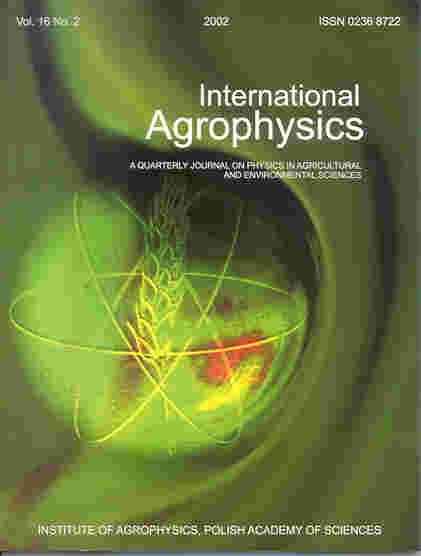|
|
|

|
|
| International Agrophysics |
| wydawca: | Instytut Agrofizyki
im. B. Dobrzańskiego
PAN
w Lublinie |
| ISSN: |
0236-8722 |
vol. 14, nr. 1 (2000)
|
|
|
poprzedni artykuł wróć do listy artykułów następny artykuł
|
|
|
Determining the effect of trampling on soils in hillslope-woodlands
|
|
|
Ferrero A.1, Lipiec J.2
|
|
|
1 National Research Council, Institute for Agricultural Mechanization, Strada delle Cacce 73, 10135 Turin, Italy |
|
|
2 Institute of Agrophysics, Polish Academy of Sciences, Doświadczalna 4, P.O. Box 201, 20-290 Lublin, Poland |
|
|
vol. 14 (2000), nr. 1,
pp. 9-16
|
|
|
streszczenie
Soil compaction by animal trampling and by vehicular traffic influences many soil parameters. However, the knowledge on the suitability of particular parameters to estimate trampling effects on sloping soils is limited. This study was aimed to determine sensitivity of some strength, hydraulic, aeration and chemical properties of loamy soil in hillslope-woodland subjected to compaction. Three compactness levels were obtained with a pneumatic compactor. Water infiltration and penetration resistance measured in the field and pore size distribution and saturated hydraulic conductivity determined in the laboratory were most sensitive to compaction. Most compaction effects were limited to the surface and intermediate (down to 20 cm depth) soil layers. Repeated compaction adversely affected the growth of the two sodseeded grasses (Lolium perenne and Phleum pratense), but to different extents. The response was more sensitive within two months after sowing than during later growth.
|
|
słowa kluczowe
sloping woodland, soil trampling, compaction measurements, hydrological properties
|
|
|
|
|
|
|